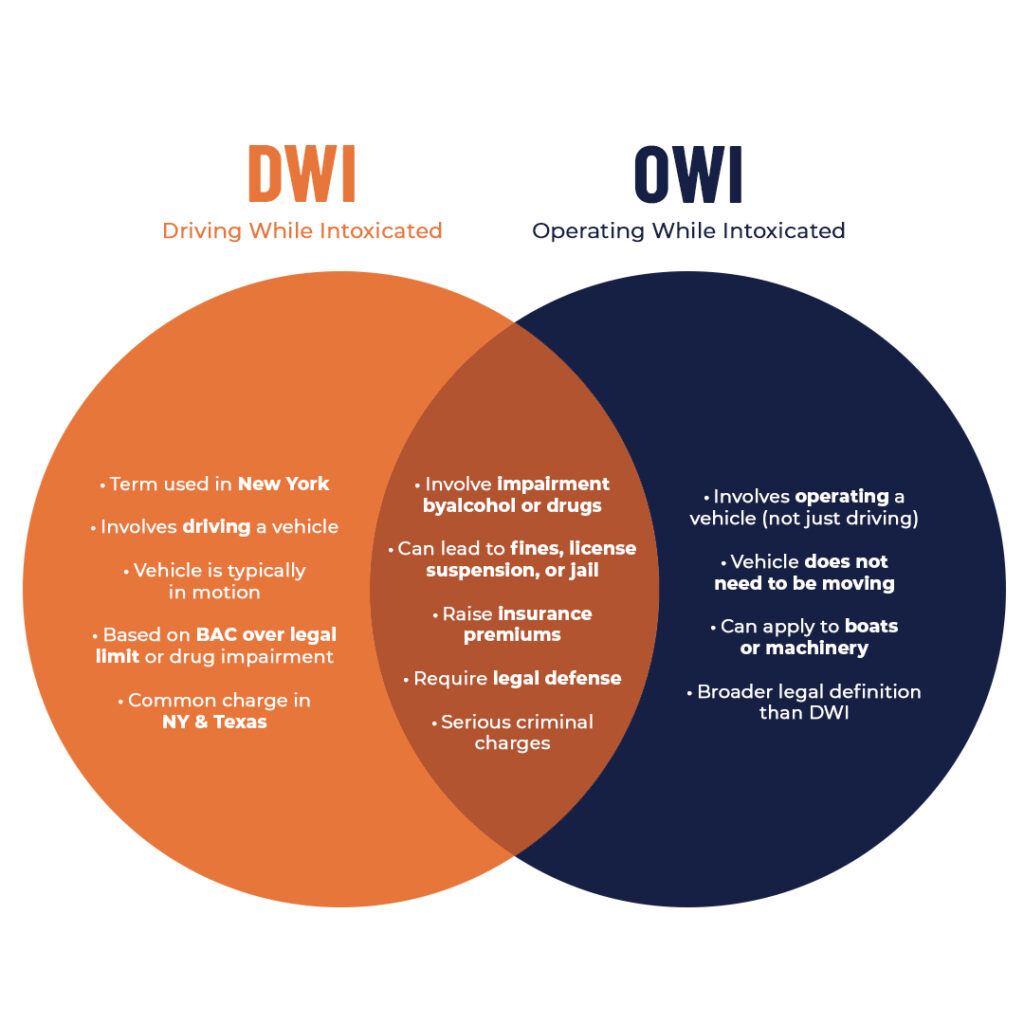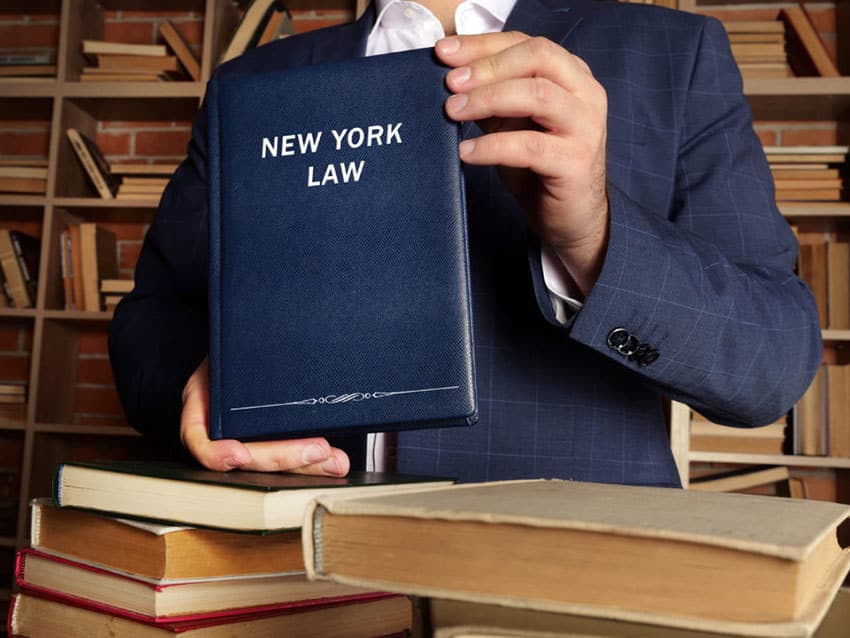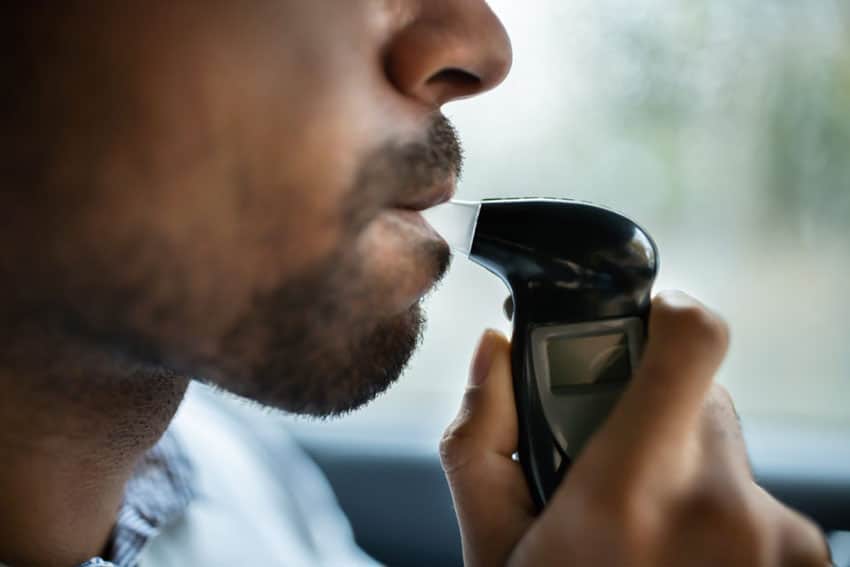When it comes to impaired driving, different states use different legal terminologies to describe the offense. OWI, DUI, and DWI are acronyms that refer to various charges related to operating a vehicle under the influence of alcohol or drugs. Understanding the distinctions between these terms is crucial for legal clarity and awareness.

OWI vs DWI vs DUI: Understanding the Acronyms
OWI (Operating While Intoxicated):
- Definition: OWI stands for Operating While Intoxicated. It is a term commonly used in states like Wisconsin and Indiana.
- Scope: OWI encompasses operating any motor vehicle while impaired by alcohol or drugs. This term is broader than DUI and DWI because it covers not only driving but also operating other types of vehicles such as boats or heavy machinery.
- Focus: The emphasis is on the act of operating a vehicle while intoxicated, regardless of whether the vehicle is in motion.
DWI (Driving While Intoxicated or Driving While Impaired):
- Definition: DWI stands for Driving While Intoxicated or Driving While Impaired. This term is used in several states, including Texas and New York.
- Scope: DWI specifically refers to driving a motor vehicle with a blood alcohol concentration (BAC) over the legal limit or being impaired by drugs.
- Focus: The primary focus is on driving under the influence, which usually involves moving the vehicle.
DUI (Driving Under the Influence):
- Definition: DUI stands for Driving Under the Influence. It is the most commonly used term across the United States, including states like California and Florida.
- Scope: DUI covers driving a motor vehicle while impaired by alcohol or drugs, similar to DWI.
- Focus: The emphasis is on driving while under the influence of substances that impair the driver’s ability to operate the vehicle safely.
Key Differences and Similarities
Difference Between DWI and OWI:
- Jurisdiction: DWI is often used in states like New York and Texas, while OWI is more common in states like Wisconsin and Indiana.
- Scope: OWI can be broader, covering the operation of any vehicle while intoxicated, not just driving.
- Terminology: The terms are largely interchangeable but reflect regional legal language preferences.
Difference Between OWI and DUI:
- Jurisdiction: DUI is widely used across many states, whereas OWI is specific to certain states.
- Scope: DUI focuses on driving under the influence, whereas OWI can include operating various types of vehicles.
- Application: Both terms describe similar offenses but may carry different legal consequences based on state laws.
Difference Between DUI, DWI, and OWI:
- Jurisdiction and Usage: Different states use different terms; for instance, DUI is prevalent in California, DWI in New York, and OWI in Indiana.
- Scope and Focus: While all three terms describe impaired driving, OWI is broader in scope, covering more types of vehicle operation.
- Legal Implications: The specific legal consequences and definitions can vary by state, even if the underlying offense is similar.
Practical Implications
Legal Penalties:
- Fines and Jail Time: All three offenses typically involve fines, possible jail time, and mandatory participation in alcohol education or treatment programs.
- License Suspension: Convictions often result in the suspension or revocation of the driver’s license.
- Insurance Rates: A conviction for any of these offenses can lead to increased insurance premiums.
What’s the Difference Between OWI and DWI?
- Legal Definition: OWI tends to be used for a broader range of activities, while DWI is more narrowly focused on driving.
- Regional Preferences: The difference is often one of regional legal terminology rather than substantive legal distinction.
Conclusion
Understanding the differences between OWI, DUI, and DWI is essential for anyone dealing with impaired driving laws. While the terms may vary by state, the fundamental concept remains the same: operating a vehicle while impaired by alcohol or drugs is illegal and carries serious consequences. Knowing the specific terminology and legal implications in your state can help in navigating these laws more effectively and ensuring compliance.








